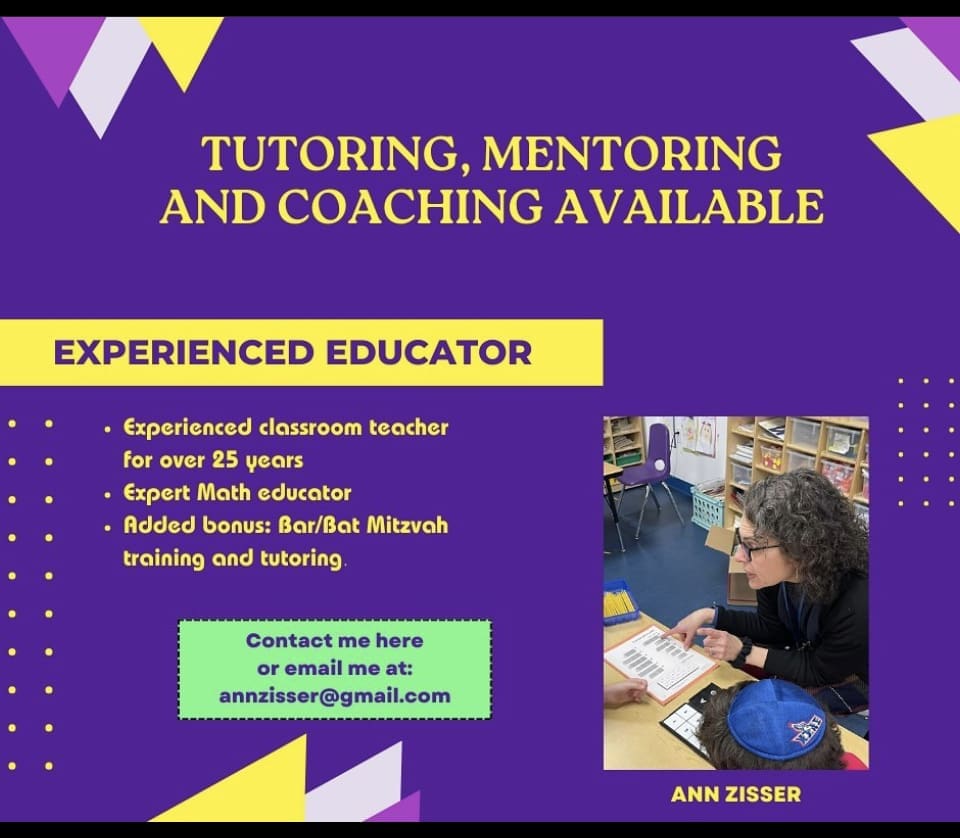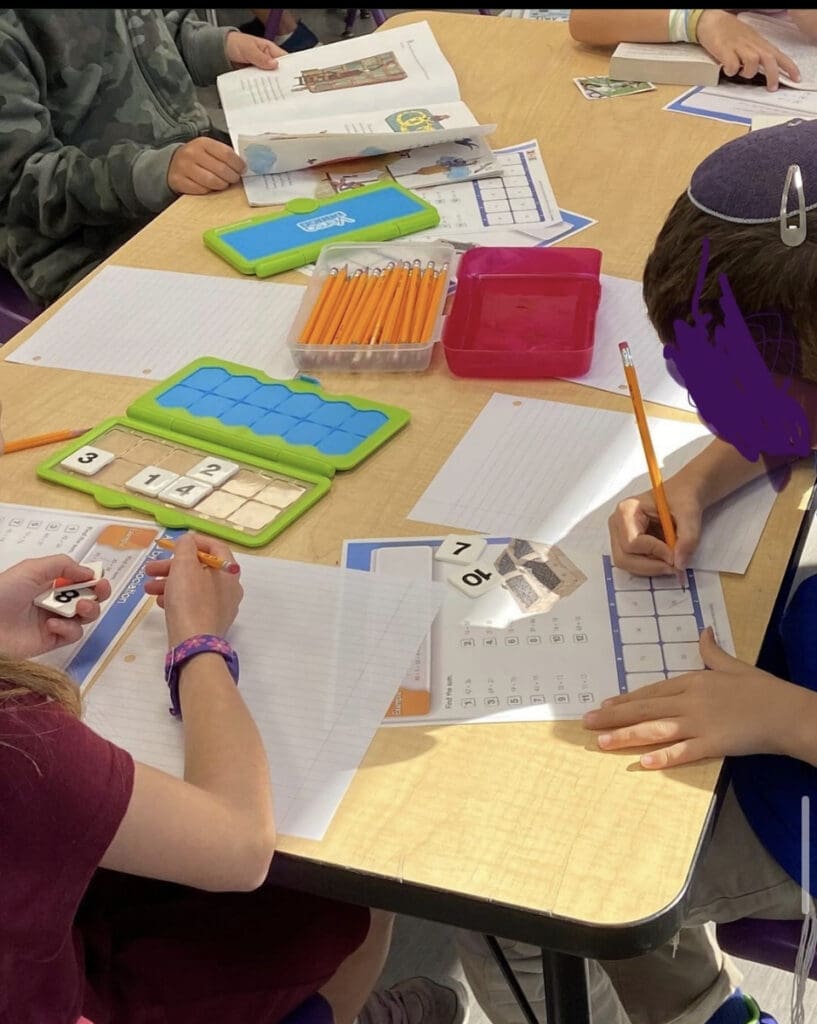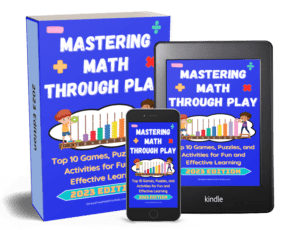My goal on this site is always helping teachers, tutors and parents in eliminating math anxiety and reaching all students. Recently I connected on Instagram with Ann Zisser, who is a math coach and mentor. Her mission is to help 3rd-5th grade teachers differentiate math instruction so they can reach all of their students. Our beliefs and methods are very similar! Here is what she has to say:
Math About Me by Ann Zisser
- “I am bad at math!”
- “Math was not my good subject.”
- “What’s this new math?”
- “Math is not my thing.
- “I am just not a math person.”
Have you heard these reactions when the subject of math comes up? Math is a subject where people are often exposed to the idea that there are only right and wrong answers, and the idea of making mistakes is bad.
Other misconceptions include that aptitude in math is inborn or genetic and that one’s ability can’t change or develop. These feelings perpetuate over time, and children continue to believe these things about themselves as they progress through their years in school and into adulthood.
How can we create a paradigm shift and foster a growth-mindset around learning math? What can we do to create a culture where learners and educators approach math with confidence and appreciate that math ability is a skill that is developed?
Benefits of Learning Math
First, let’s understand the benefits of learning math. There are many! Studying math actually rewires your brain. Dr. Arthur Benjamin, a professor of mathematics in CA, has said that “Mathematics is food for the brain.” Truly, math is all about finding patterns and making connections, so this actually makes a lot of sense. Since math requires both concrete and abstract thinking, this kind of work strengthens and develops our brain’s muscles.
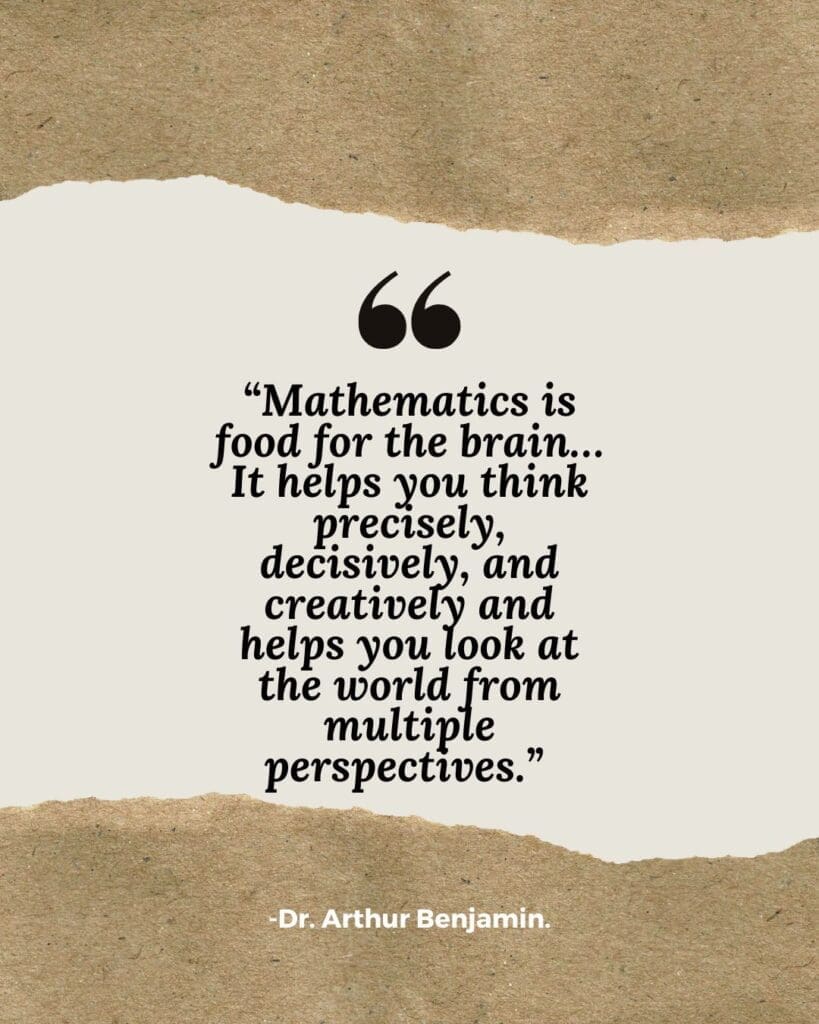
Math benefits our students in countless ways. Learning math improves problem solving skills. By learning to pay attention to all the assumptions of a problem, and breaking down a complicated problem into manageable steps, we are helping our students develop ways to think more critically and logically. In addition, explaining our mathematical thinking and reasoning helps build communication skills, both oral and written.
Math Is Everywhere
Now, think about real-world scenarios and activities. There isn’t anything you do that doesn’t involve math skills. From balancing your personal budget, to baking your favorite dessert, to figuring out your travel plans to your favorite vacation spot, to planning your next workout. Math skills are always needed to help us plan, keep order, and be more thoughtful and careful.
As an experienced math educator and teacher coach and mentor, I approach teaching for understanding, building first conceptual understanding as a foundation for deeper learning, before promoting learning procedural methods. This encourages students to explore as they discover for themselves that there isn’t always just one way to get a correct answer, there can be multiple ways to find the solution. I am often heard saying that we are “building a math toolbox”.
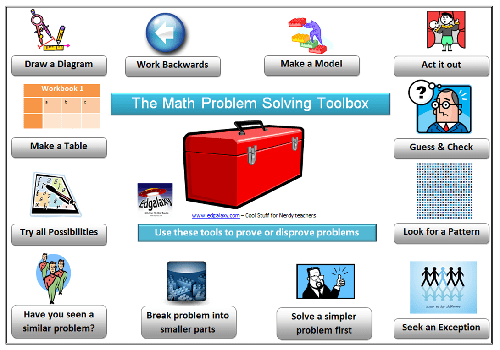
(image from Ed Galaxy)
This approach of learning new concepts and skills through a process of teaching for understanding moves away from a focus on rote memorization This helps students understand math topics conceptually starting with concrete methods, and moving onto abstract representations when students are ready. I promote that numbers are dynamic, and that there are many ways to compose and decompose numbers in order to add, subtract, multiply and divide.
Why Play Math Games?
Math games are incredible ways to teach, learn and practice math skills and concepts. Helping to develop automaticity in math facts can be reinforced through playing games, such as Addition War or Product Tic Tac Toe. Deeper mathematical concepts can also be practiced through games, both with concrete items or online tools. (see the SFMK recommended games here)
This philosophy and approach is integral to my teaching practice. Committed to teaching lessons within a rotational model, this allows me as an educator to be “the guide on the side” rather than the “sage on the stage.” I am meeting students where they are, offering direct teaching when needed. I also provide practice opportunities, extra support when necessary, and challenge work for those ready to move onto the next step. By making math accessible in this way it helps students experience the creativity of learning math and building their skills. It also teaches them to internalize and visualize mathematical concepts, which are the ingredients to success in math.
About the Author

Ann Zisser is an experienced and innovative math educator. She has been teaching for almost 30 years and has a degree in Economics and Business from SUNY Albany, as well as a Masters in Special Education from Hunter College. She also has extensive experience as a tutor.
Follow @mathteacherroom on Instagram to connect with Ann about teacher coaching and mentoring, providing lesson planning support and assistance in creating engaging math rotations and centers.
